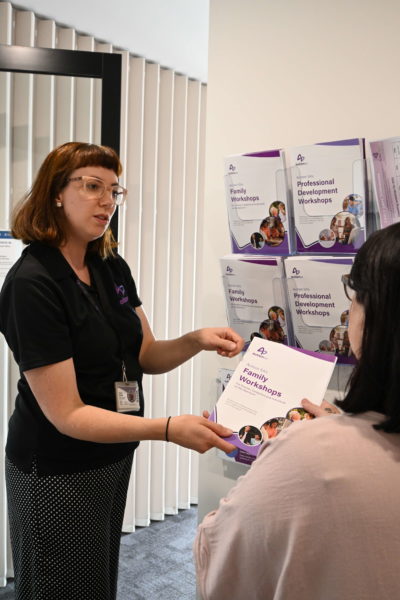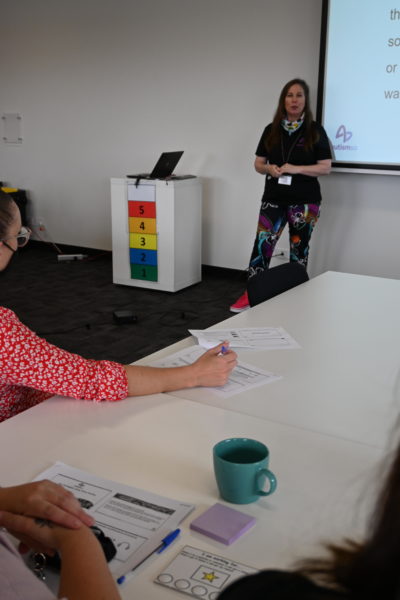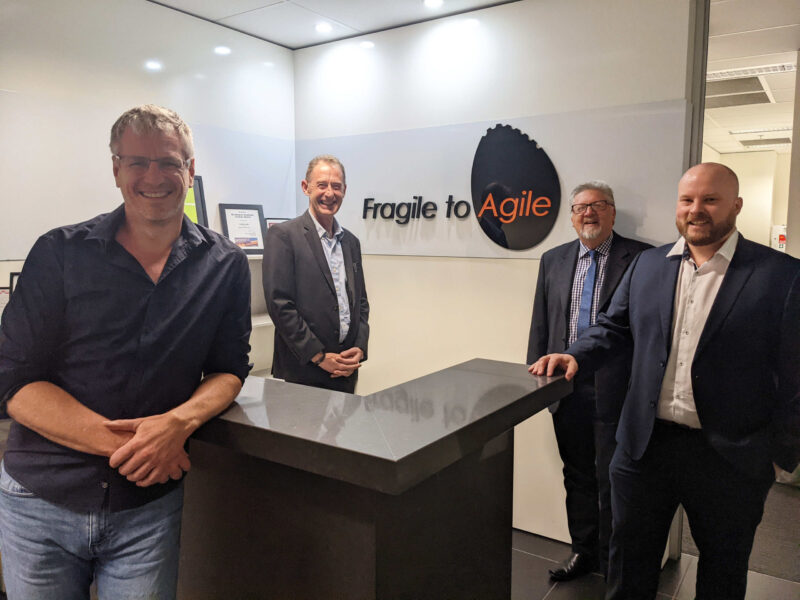The survey also acted as a strong entry point, backed by solid data, for Belinda Taylor, who has joined the organisation in the newly created role of Community Engagement and Communications Officer.
Belinda said that Autism SA enlisted the help of Square Holes to navigate their rapidly expanding organisation.
“We engaged the services of Square Holes to look at our service offering and to create a benchmark Net Promoter Score (NPS). We also wanted to look at the different sort of touch points, but also really learn from our autistic clients themselves about what services and support they’re needing, how that’s working, where there might be gaps, and what new programs might be possible.
“With scalability comes the need for community engagement, and maintaining or improving that NPS result,” says Taylor.
As the first organisation of its kind in Australia, Autism SA has a long history as a leader in specialised consulting and services to people on the autism spectrum, their families and the broader community.

Belinda says that the survey has provided Autism SA with some key areas to focus on in the immediate future.
“Communication is a key goal. What we found out as a part of this survey was, because of the fast growth, there’s a waitlist in certain areas of the business. And that is very consistent with the industry as a whole. In terms of communication with our clients, and carers of clients, we felt that they wanted more communication around the waitlist,” says Taylor.
“That was one of the big things that came out of that research.”
“Getting that feedback is really valuable in terms of where those sort of pain points are for clients or carers of clients in services and support. It’s provided us with an opportunity to have a look at the different areas of the business and seeing how things are working, and where we might be able to improve upon.”
Due to the nature of the work that Belinda and the team at Autism SA do, along with the unique and varied needs of their clients, they have had to adapt the way that they collect data around their services.
“At the moment, I’m looking at implementing an organizational wide project that’s really concerned with hearing the voice of the client. Something that’s worked really well in aged care, is that when you’re getting feedback, you’re asking everyone in that safe circle of people. So, it’ll be parents, it’ll be family, it’ll be volunteers, it’ll be staff that are working and it’ll be the clients. This is how we can make sure that our service and supports are what our client really wants,” says Taylor.
“And if there’s any gaps like the ones, we have already identified in the Square Holes survey, we can really draw out, and drill down on what it is our clients are seeking.”
Belinda says that this centering of the client experience is paramount for the organisation to retain clients over a long-time span.
“I think in terms of longevity, community engagement is going to be really important because the NDIS changes, and governments change, so we’re in this constantly evolving environment. To get really clear on the service offering and providing really good support will be so important in the future,” says Taylor.
Square Holes Founder and Managing Director, Jason Dunstone says that for organisations like Autism SA, engaging with their clients through surveys and other means is essential to making sure their services are hitting the mark.

“Surveys are a great way to draw out those pain points and to really drill down into the parts of your service that are working well, and those areas that need a little attention,” says Dunstone.
“We are looking forward to continuing to work in conjunction with Autism SA’s Community Engagement and Communications Officer to provide the anecdotal and data evidence to help evolve the organisations offerings.”
In the meantime, Belinda is working on developing new ways to receive feedback from the people at the heart of the organisation – those with autism.
“It would be really easy to think that that your main stakeholder is the carer of that person with autism. And that’s probably what is happening because for Autism SA, our main clientele is between the ages of four to 13. So often we’re finding when we’re getting feedback is mainly from the carer, but it’s not actually from the individual,” says Taylor.
“So, it’s working through, how do we get that sort of feedback from our clients? And how do we expand that? We want it so that process is holistic and we are also capturing the people that support them.”



